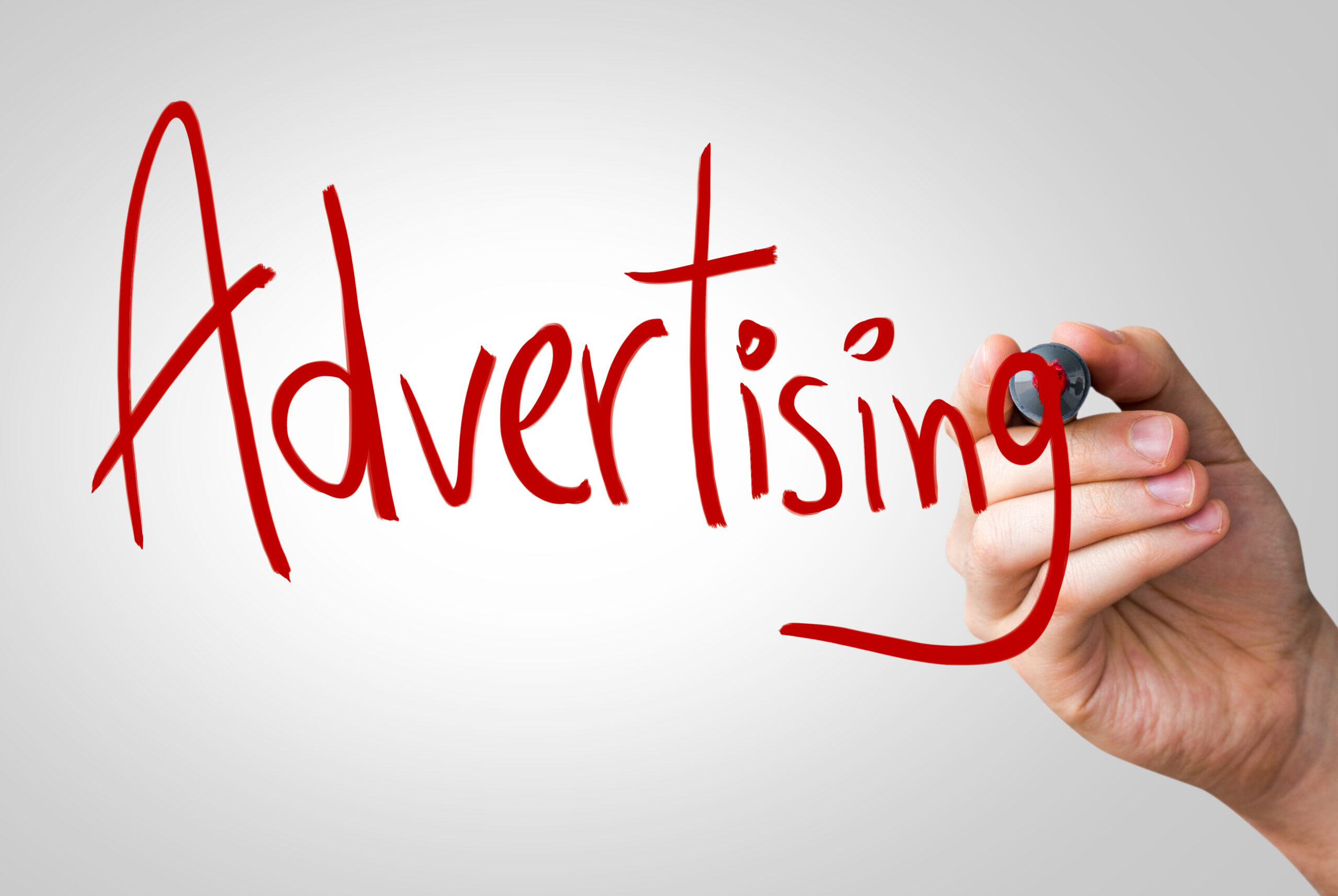Types of Advertisements in Dreams
Dreams about Commercial Advertisements
Dreams about advertisements can be intriguing and may have various meanings depending on the type of advertisement, the emotions experienced during the dream, and personal associations. There are several types of advertisements that can appear in dreams, each carrying unique significance.
Dreams about Commercial Advertisements: These dreams often relate to one’s desire for material possessions or the feeling of being bombarded with consumerism in waking life. They may symbolize the need to simplify or reevaluate priorities. If the advertisement is for something one wants or needs, it could reflect a deep-seated wish or an unconscious recognition of a necessary change in life.
Dreams about Product Advertisements: Dreams featuring specific products being advertised can indicate a focus on material goods or the desire for status symbols. These dreams may suggest that one is too focused on external validation and material possessions rather than inner fulfillment. It could also signify a need to reevaluate priorities and shift focus towards more meaningful aspects of life.
Dreams about Political Advertisements: Dreams involving political advertisements often relate to feelings of powerlessness or frustration with the current state of affairs in one’s waking life. They may indicate a sense of disillusionment with societal norms, government policies, or leadership figures. Alternatively, these dreams could signify a desire for change and an active engagement with politics.
Dreams about Public Service Announcements: Dreams featuring public service announcements often relate to personal values and moral compasses. These dreams may indicate a growing sense of social responsibility or a need to align one’s actions with higher principles. They could also reflect a desire for self-improvement, indicating the need to adopt healthier habits or address unresolved issues in waking life.
Dreams about Flashy Ads: Dreams featuring flashy or attention-grabbing advertisements often symbolize the allure of temptation and instant gratification. These dreams may indicate an attraction to superficial pleasures or a tendency to prioritize short-term gains over long-term consequences. Alternatively, they could signify a need to stand out and be noticed in some way, highlighting the importance of self-expression.
Dreams about Retro Ads: Dreams featuring retro advertisements often evoke a sense of nostalgia for past experiences or times. These dreams may symbolize a longing for simpler days or a desire to reconnect with one’s roots. They could also indicate a need to revisit and learn from past mistakes in order to grow as an individual.
Dreams about Advertisements on Social Media: Dreams featuring advertisements on social media often relate to feelings of overwhelm or anxiety related to online interactions. These dreams may signify a fear of missing out (FOMO) or the pressure to present a curated image on social media platforms. They could also indicate a need to disconnect from the digital world and engage more with the physical reality.
Ultimately, the interpretation of dreams about advertisements depends on the individual’s experiences, emotions, and associations during the dream. By examining these factors, one can gain insight into their personal desires, needs, and priorities, leading to greater self-awareness and growth.
The concept of advertisement in dreams is a complex and multifaceted phenomenon that can have various meanings depending on the context and personal experiences of the dreamer.
Advertisements in dreams are often symbolic representations of the subconscious mind’s attempt to process and make sense of the external world, particularly in relation to consumerism and material possessions.
Some possible explanations for advertising in dreams include:
Symbolic Representation: Advertisements can serve as symbols for desires, fears, or anxieties related to material possessions or social status. For example, seeing a car advertisement may indicate a desire for freedom or independence.
Reflection of Personal Interests: Dream advertisements can also reflect the dreamer’s personal interests and hobbies. For instance, seeing an advertisement for a musical instrument may suggest a hidden talent or passion.
Warning or Caution: In some cases, dream advertisements may serve as warnings or cautionary messages related to consumerism or materialism. For example, seeing a false advertisement may indicate the need to be more cautious in one’s consumption habits.
Other possible types of advertisements that can appear in dreams include:
- Product Advertisements: These are explicit ads for specific products, such as cars, electronics, or clothing. They can have various meanings depending on the context and personal associations with the product.
- Service Advertisements: These advertisements promote services rather than products, such as travel agencies, restaurants, or healthcare services. They can symbolize a desire for relaxation, entertainment, or wellness.
- Political or Social Advocacy Advertisements: These ads promote specific social causes, ideologies, or agendas and can represent the dreamer’s values, fears, or anxieties related to politics or social justice.
Understanding the meaning of advertisements in dreams requires reflection on personal experiences, emotions, and motivations. By exploring the symbolism and themes present in these ads, individuals can gain insight into their subconscious mind and develop a deeper understanding of themselves.
Dreams about watching TV commercials or billboards may suggest that you are feeling overwhelmed by outside pressures.
Advertisements in dreams can be a fascinating and thought-provoking experience, offering insights into our subconscious mind. These advertisements may manifest in various forms, such as TV commercials, billboards, print ads, or even social media ads.
TV Commercials: Dreams about watching TV commercials or billboards may suggest that you are feeling overwhelmed by outside pressures. It could also indicate that your mind is preoccupied with material concerns or consumerism. In this context, the advertisements serve as a representation of the external world’s demands and expectations.
Beyond the obvious reference to advertising, dreams about TV commercials can also symbolize personal desires, needs, or aspirations that are yet to be fulfilled. It may reflect your desire for something more in life, whether it is related to material possessions, social status, or emotional fulfillment.
Billboards: Dreams featuring billboards often represent a need to re-evaluate or change one’s current perspective on life. The constant exposure to advertisements can signify the feeling of being stuck in a rut or overwhelmed by external stimuli. In this case, the dreamer may feel pressure to conform to societal norms and expectations.
Print Ads: Dreams involving print ads might be an indication that you are struggling with your own self-image or identity. This type of advertisement can symbolize the desire for recognition or validation from others. The image itself may also represent a aspect of yourself that you have hidden or suppressed.
Social Media Ads: In today’s digital age, social media ads have become increasingly ubiquitous in our waking lives. Dreams featuring social media ads often reflect concerns about how we present ourselves online and the fear of being judged or criticized by others. It could also symbolize a sense of disconnection from reality due to excessive exposure to virtual information.
Analyzing Advertisements: To better understand the significance of an advertisement in your dream, consider the following factors: (1) Emotional tone: How did you feel while watching or reading the advertisement? Was it positive, negative, or neutral? (2) Personal connection: Did the advertisement resonate with a specific aspect of your life or personality? (3) Context: What was happening in your waking life when you had the dream? Were there any stressors or challenges that might be influencing your subconscious mind?
By examining these factors and exploring the possible meanings behind advertisements in your dreams, you can gain a deeper understanding of your own thoughts, desires, and emotions. Remember that dreams are highly personal and subjective experiences, so the significance of an advertisement may vary from person to person.
This can also indicate a fear of being judged or evaluated by others.
Dreams about advertisements can have various meanings depending on their content, emotions, and personal associations. In this article, we will delve into the different types of advertisements that appear in dreams and what they might symbolize.
One type of advertisement dream is where you see yourself watching an ad on TV or a billboard. This can be a reflection of your desire to learn new things and gain knowledge. It may also indicate a need for mental stimulation, which could be related to feelings of boredom or restlessness in waking life. For example, if you’re seeing ads for educational courses or self-improvement programs, it could suggest that you’re looking for ways to upgrade your skills or enhance your personal growth.
Another type of advertisement dream is where you see yourself selling or promoting a product. This can be an indication of a fear of being judged or evaluated by others. You may feel anxious about meeting people’s expectations, making mistakes, or failing in some way. In this case, the advertisement could represent your inner critic or perfectionistic tendencies.
A dream where you see ads for unhealthy foods or vices can indicate an overindulgence in bad habits. This might suggest that you need to reassess your priorities and make healthier choices in waking life. It could also signify a fear of losing control or succumbing to temptation.
Ads featuring luxury brands or high-end products may symbolize feelings of inadequacy or a perceived lack of status. In this case, the advertisement might be a manifestation of your desire for material possessions or your anxiety about being judged by others based on your socio-economic standing.
In some cases, advertisements in dreams can represent creativity and inspiration. For instance, if you see ads for art supplies or music equipment, it could suggest that you’re yearning to express yourself artistically or tap into your creative potential.
Lastly, dreams about being the spokesperson or mascot for an ad may indicate a sense of responsibility or duty in waking life. You might feel like you need to represent others or uphold certain expectations, which can be overwhelming and stressful. This could suggest that you’re shouldering too much burden or feeling trapped by your commitments.
In conclusion, dreams about advertisements can have various interpretations depending on the context, emotions, and personal associations involved. By examining the types of ads and messages presented in these dreams, you may uncover underlying fears, desires, and anxieties that are worth exploring further.
According to the American Psychological Association, these types of dreams often stem from feelings of anxiety and selfdoubt.
Advertisement dreams are a type of lucid dream, which is a dream that the dreamer is aware they are dreaming while still asleep.
In advertisement dreams, individuals often see themselves as a product or service being promoted to others. These dreams can be unsettling and may leave the person with feelings of unease or anxiety upon waking.
Some possible interpretations of advertisement dreams include:
- Fear of being judged or evaluated by others
- Self-doubt and uncertainty about one’s own abilities
- Anxiety about meeting certain expectations or standards
- Dissatisfaction with one’s life or current circumstances
- Feelings of being overwhelmed or inadequate
There are several types of advertisement dreams that people may experience, including:
- Selling oneself or one’s skills: This type of dream can be an expression of self-doubt and anxiety about being able to meet expectations or provide value to others.
- Being sold as a product: In this type of dream, the individual may feel like they are being objectified or commodified in some way, leading to feelings of anxiety and discomfort.
- Selling a service or product that is not one’s own: This dream can symbolize feelings of inadequacy or disconnection from one’s own identity or values.
- Being advertised as something one is not: This type of dream can indicate a sense of inauthenticity or disconnection from one’s true self or purpose.
Overall, advertisement dreams can be an expression of underlying anxiety and self-doubt. They may also represent a desire to present oneself in the best possible light, while struggling with feelings of inadequacy or uncertainty about how others perceive us.
To better understand your advertisement dream, consider exploring your own feelings of anxiety and self-doubt in waking life. Ask yourself: What am I afraid of? What am I uncertain about?
Symbols and Meanings
The Role of Advertisements in Dreams as Symbols
Symbols and meanings play a significant role in the interpretation of dreams, with advertisements being one such symbol that can have various meanings depending on the context of the dream.
Advertisements in dreams can represent the unconscious mind’s attempt to process and analyze information about the self and one’s surroundings. They may signify desires, needs, or unresolved issues that require attention and exploration.
In this sense, advertisements in dreams can serve as a form of symbolic representation, drawing on the power of visual imagery to convey messages that may not be accessible through verbal language alone. The use of bright colors, catchy slogans, and memorable images serves to capture the viewer’s attention, much like an advertisement aims to grab one’s interest in waking life.
The role of advertisements in dreams is multifaceted, reflecting both conscious and unconscious influences on the dreamer. On the one hand, they may symbolize external pressures or societal expectations that shape one’s thoughts and behaviors. For example, a dream about an advertisement for a new product could represent feelings of inadequacy or pressure to keep up with changing trends.
On the other hand, advertisements in dreams can also signify internal desires or aspirations, revealing underlying motivations and needs. For instance, dreaming about an advertisement for a vacation resort might indicate a longing for relaxation and escape from daily responsibilities.
The symbolism of advertisements in dreams often hinges on the specific product, service, or idea being promoted. Common themes may include:
- Desire for luxury or indulgence
- Nostalgia or fond memories associated with a particular brand or product
- Feeling overwhelmed by choices or advertisements in waking life, reflecting anxiety or stress
- Need for self-improvement or personal growth, as represented by products or services offering solutions to problems
In addition to their role in conveying desires and needs, advertisements in dreams can also serve as a reflection of the dreamer’s relationship with consumerism. This may involve:
- Confronting issues related to materialism or overconsumption
- Navigating conflicting desires for luxury and simplicity
- Exploring the tension between individuality and conformity in consumer culture
The interpretation of advertisements in dreams requires an understanding of both personal symbolism and cultural influences. By examining one’s own associations with various products, services, or ideas, as well as considering broader social contexts, individuals can gain insight into their unconscious mind and the deeper meanings behind their dreams.
Symbols and meanings play a crucial role in the interpretation of dreams, particularly when it comes to advertisements. In dreams, advertisements can represent various aspects of our waking lives, desires, and fears. The context in which they appear often holds significant meaning.
One possible interpretation is that an advertisement in your dream represents a part of yourself that you’re trying to present or promote to the world. This could be related to your professional life, personal ambitions, or even relationships. Consider what product or service is being advertised and how it relates to your own aspirations or desires.
For instance, if you dreamed about an advertisement for a luxury car, it may symbolize your desire for status, wealth, or success. Conversely, an ad for a low-cost item could represent your need for simplicity, practicality, or financial stability.
The product itself might also hold symbolic meaning. For example, food advertisements can signify nourishment, comfort, or sustenance for the body or soul. Fashion ads often represent a desire to present oneself in a certain way to others or to express individuality and style.
Furthermore, advertisements in dreams may serve as a reflection of societal pressures and expectations. This could be related to cultural norms, media messages, or even advertising itself, highlighting the power of advertising to shape our perceptions and desires.
The location where the advertisement appears can also add layers of meaning. For instance, an ad on a busy street might symbolize the fast-paced nature of modern life, while an ad in a quiet neighborhood could represent a desire for calmness or tranquility.
Considering these factors – the product being advertised, the context in which it appears, and your own associations with the advertisement – will help you unravel its meaning within your dream. This process allows for a more nuanced understanding of your subconscious thoughts and desires.
In dreams, advertisements can serve as symbols for different aspects of your life, such as a new opportunity or a change in perspective.
Symbols and meanings play a crucial role in our lives, particularly in the realm of dreams and the subconscious mind. When we encounter advertisements in our dreams, it’s essential to understand that these symbols can represent various aspects of our waking lives. Advertisements in dreams often serve as metaphors for the different stages or milestones we’re experiencing in our personal journey.
For instance, seeing an advertisement for a product you’ve been wanting to buy could symbolize a new opportunity or a change in perspective that’s on the horizon. Perhaps the product itself represents something you’ve been seeking in your life, such as happiness, success, or fulfillment. The advertisement may be urging you to take action and seize this chance, whether it’s related to your career, relationships, or personal growth.
On the other hand, an advertisement for a product that’s no longer relevant or desirable could indicate feelings of stagnation or complacency in your life. You might feel like you’re stuck in a rut and need to make changes to break free from monotony. The advertisement may be prompting you to reassess your priorities and seek out new experiences or challenges.
Additionally, advertisements in dreams can also represent the various personas we adopt in our daily lives. For example, seeing an advertisement for a luxury brand could symbolize feelings of inadequacy or low self-esteem. You might be comparing yourself unfavorably to others and feeling the need to keep up appearances. Conversely, an advertisement for a practical or budget-friendly product may indicate that you’re being more mindful of your finances and seeking value for money.
Furthermore, advertisements in dreams can also reflect our relationships with others. For instance, seeing an advertisement featuring a romantic couple could symbolize desires for love and connection in your life. Alternatively, an advertisement for a family-friendly product may indicate feelings of nostalgia or a desire to strengthen bonds with loved ones.
In conclusion, advertisements in dreams offer a unique window into our subconscious mind, revealing symbols and meanings that can provide insight into our waking lives. By paying attention to these symbols and deciphering their meaning, we can gain a deeper understanding of ourselves and the world around us.
Advertisements may also represent the way you present yourself to the world, or how others perceive you.
Symbols and meanings can be complex and multifaceted in advertisements, as they often rely on cultural associations, personal experiences, and societal norms to convey messages. In the context of dream interpretation, advertisements may represent how we present ourselves to the world or how others perceive us.
Advertisements often use symbols that evoke emotions and create a sense of urgency or desire. These symbols can be interpreted in different ways depending on their cultural significance and personal associations. For example, a red apple might represent health and wellness in one culture but temptation and sin in another.
The way we present ourselves to the world is closely tied to our identity and self-image. Advertisements often manipulate these images by creating idealized or aspirational representations of products, people, or lifestyles. In dreams, advertisements can symbolize how we feel about our own identities and self-presentations.
Similarly, how others perceive us can be reflected in advertisements. Our fears and anxieties about being judged or evaluated by others may manifest as advertisements that emphasize social status, beauty standards, or material possessions. In dreams, advertisements may represent these concerns and insecurities.
The use of symbolism and metaphor in advertisements is a key aspect of their meaning-making potential. By analyzing the symbols and themes presented in a dream advertisement, we can gain insight into our own thoughts, emotions, and motivations. For example, if a dream advertisement features a product that represents status or achievement, it may symbolize our desire for recognition or success.
Furthermore, advertisements often use repetition and consistency to reinforce their messages. This repetition can manifest as a recurring theme or image in dreams, highlighting the importance of these symbols in our psyche. For instance, if we frequently see images of cars in dream advertisements, it may indicate our desires for freedom, adventure, or escape.
Finally, the interpretation of dream advertisements is highly subjective and depends on individual experiences, emotions, and associations. By considering the personal significance of advertisements in our waking lives, we can better understand their meaning in our dreams and gain a deeper understanding of ourselves and our motivations.
Research from Harvard University suggests that the symbolism used in advertisements can have a profound impact on our subconscious minds and behaviors.
Symbols and meanings are intricately woven into the fabric of our collective consciousness, influencing our perceptions and behaviors in subtle yet profound ways.
According to research conducted at Harvard University, advertisements harness the power of symbolism to tap into our subconscious minds, often using imagery that resonates on an unconscious level.
This phenomenon is rooted in cognitive psychology, which suggests that our brains process visual information more efficiently than verbal information, making symbols and images a potent tool for advertisers seeking to capture our attention.
Symbols can be broadly categorized into several types:
- Logos: Logos are the most recognizable symbol of a brand, often depicted as a logo or icon. They serve as an instant trigger for the associated product or service.
- Emblems: Emblems convey a sense of status, prestige, and quality, frequently used by luxury brands to evoke feelings of exclusivity and sophistication.
- Pictograms: Pictograms are simple images that convey a specific message or idea. They’re often used in advertising to communicate complex information in a visually engaging way.
Another crucial aspect of symbolic communication is the concept of metaphorical meaning, which allows advertisers to tap into our collective unconscious and create associations between their product or service and abstract ideas or emotions.
A classic example is the iconic Coca-Cola logo, featuring a cursive script that resembles a flowing ribbon. This design choice taps into the symbolic language of nostalgia and familiarity, evoking feelings of warmth and comfort in consumers.
Advertisers also leverage cultural symbolism to connect with their audience on a deeper level. For instance:
- Cultural icons: Brands like Nike often use iconic imagery, such as the swoosh logo or Michael Jordan’s silhouette, to tap into America’s rich sporting culture and evoke feelings of athleticism and competition.
- Archetypes: Companies like Apple frequently draw upon archetypal symbolism, using imagery that resonates with timeless human experiences, such as creation, innovation, or revolution.
The use of symbols in advertising has a profound impact on our subconscious minds and behaviors, often influencing our purchasing decisions without us even realizing it. By understanding the symbolic language used by advertisers, we can gain insights into their marketing strategies and make more informed choices about the products and services that shape our lives.

Interpreting Advertisements in Dreams
Putting it All Together
Interpreting advertisements in dreams can be a fascinating and complex process, as they often carry multiple layers of symbolism and personal meaning. To begin with, it’s essential to consider the type of advertisement you saw in your dream and its content.
Advertisements in dreams can represent various aspects of our waking lives, such as desires, fears, anxieties, or even unresolved issues. For instance, seeing a product advertisement in your dream may indicate that you’re drawn to something in real life, whether it’s a relationship, career goal, or material possession.
Consider the context of the advertisement in your dream: was it loud and attention-grabbing, or was it subtle and easy to miss? This could reflect your own approach to dealing with challenges or making decisions in your waking life. Perhaps you’re too bold and impulsive, or maybe you’re too cautious and hesitant.
Furthermore, the product or service advertised in your dream can hold significance depending on its relevance to your current circumstances. For example, dreaming about a food advertisement when you’re going through a period of hunger or cravings may symbolize unmet emotional needs or unresolved desires.
The environment in which you saw the advertisement is also crucial to consider. Was it in a familiar setting, such as home or work, or was it in an unusual location? This could indicate how your subconscious mind associates certain places with specific emotions or memories.
Another aspect to examine is the emotions evoked by the advertisement: did you feel excited, anxious, or indifferent? These emotions can reveal aspects of yourself that need attention and exploration. For instance, if you felt anxious while watching an advertisement, it might suggest that you’re feeling overwhelmed or uncertain about something in your waking life.
Additionally, consider the people involved in the advertisement: were they friends, family members, or strangers? Their presence could represent aspects of yourself or relationships that require nurturing and attention. Pay close attention to their interactions with you and any emotions you felt during the encounter.
Ultimately, interpreting advertisements in dreams requires a deep understanding of your personal experiences, emotions, and motivations. By examining the various components of your dream advertisement, you can uncover hidden meanings and gain valuable insights into your subconscious mind.
The interpretation of advertisements in dreams can be a fascinating and complex topic, as it often reflects the subconscious mind’s attempt to process and make sense of our waking experiences. When we see an advertisement in our dream, it may symbolize various aspects of our lives, including our desires, fears, and motivations.
Here are some possible interpretations of seeing an advertisement in your dream:
- An unfulfilled desire or longing
- A message from the subconscious mind to pay attention to a specific aspect of life, such as finances, relationships, or personal growth
- A reflection of current events, news, or societal influences that are impacting your life
- A need to re-evaluate priorities and make adjustments in wakeful life
Consider the type of advertisement you see:
- Fashion or beauty ads may indicate a desire for self-improvement or a need to enhance your appearance
- Cars, transportation, and travel ads may symbolize freedom, adventure, or a sense of restlessness in life
- Food and drink ads could represent nourishment, pleasure, or overindulgence in certain aspects of life
- Home and real estate ads might signify a need for stability, security, or a desire to create a sense of home in your waking life
The context in which the advertisement appears can also provide insight:
- Being watched while seeing an ad may suggest feelings of being judged or evaluated by others
- An ad appearing on a screen, such as TV or phone, could represent the influence of media and technology on your life
- A dream where you’re trying to avoid an advertisement might indicate a sense of being overwhelmed or feeling like you’re under pressure in wakeful life
Ultimately, the interpretation of advertisements in dreams depends on individual experiences and associations. Reflecting on your own emotions, thoughts, and circumstances while awake can help you better understand the symbolism and messages hidden within these dream symbols.
To truly understand what an advertisement means in your dream, consider the context of the dream as well as your own thoughts and feelings at the time of the dream.
An advertisement that appears in your dreams can have multiple meanings, and deciphering its significance requires careful consideration of various factors.
One way to approach this is by analyzing the context of the dream itself. Take note of the events and emotions that led up to the appearance of the advertisement. For instance, were you feeling anxious or overwhelmed before falling asleep? If so, it could indicate that your subconscious mind is processing these feelings and using the advertisement as a metaphor for something in your waking life.
Another crucial aspect to consider is Your Own Thoughts and Feelings. What are your associations with the advertisement itself? Do you have any personal connections or biases towards the product or service being advertised? Perhaps the advertisement represents an unresolved issue or unconscious fear that your mind is grappling with. By examining these personal connections, you can gain a deeper understanding of why this particular advertisement appears in your dream.
It’s also important to look at the symbols and imagery present in the dream, as well as the overall atmosphere or mood. For example, if the advertisement is displayed prominently but with a sense of eeriness or foreboding, it may suggest that you’re being drawn into something without fully realizing its implications.
In addition to these individual components, consider how they interact and influence each other within the dream scenario. Are there any obvious relationships between the advertisement and your surroundings, such as people in the dream reacting to the advertisement or interacting with you while it’s displayed? The way these elements intertwine can offer valuable insights into what the advertisement is trying to convey about your subconscious mind.
Lastly, don’t forget to reflect on your personal experiences and relationships outside of your dreams. Have you been exposed to similar advertisements recently in your waking life or social media feed? Are there any recurring themes or patterns in these ads that might be influencing your dream imagery? By examining the connections between your external reality and your internal world, you can unravel the mystery behind the advertisement in your dreams.
Ultimately, interpreting an advertisement in a dream requires patience, self-awareness, and an open mind. By considering both the context of the dream and your own thoughts and feelings at the time of the dream, you’ll be well on your way to uncovering its hidden meaning and significance.
Take note of any recurring themes or symbols that appear in your dreams, as these may hold deeper significance.
Interpreting advertisements in dreams can be a complex and multi-layered process, requiring careful attention to detail and a willingness to explore the subconscious mind. By examining recurring themes or symbols that appear in your dreams, you may uncover hidden meanings and desires.
Advertisements in dreams often represent messages from our unconscious mind, highlighting aspects of ourselves that we may be neglecting or avoiding. These ads can serve as reminders of unresolved conflicts, suppressed emotions, or unfulfilled desires.
Some common themes associated with advertisements in dreams include:
- Desire for material possessions or luxury items: These dreams may indicate feelings of inadequacy or a lack of fulfillment in waking life. You may be seeking external validation or trying to compensate for perceived shortcomings.
- Pressure to conform or fit in: Advertisements in dreams can also symbolize the desire to belong or meet societal expectations. This may suggest that you’re feeling anxious about not meeting someone’s standards or struggling with identity issues.
- Reward and motivation: Ads in dreams often represent incentives, rewards, or recognition. These may be reminders of past achievements or a need for encouragement in current pursuits.
Recurring symbols in advertisements can hold specific meanings depending on the context:
- Product logos: May symbolize personal identity, status, or brand loyalty. Consider which products you associate with specific memories or emotions.
- Sales and discounts: Could indicate feelings of scarcity or limited time for self-care. Reflect on how you prioritize your own needs and wants in waking life.
- Commercial jingles or slogans: Often associated with emotional connections or past experiences. You might be reminded of a particular event, person, or memory linked to the sound or phrase.
When interpreting advertisements in dreams, consider your personal associations and memories related to these symbols. By examining your subconscious mind, you may uncover hidden desires, fears, or unresolved issues that require attention and exploration.
The interpretation of advertisements in dreams is highly subjective and influenced by individual experiences. Remember to approach this process with an open and non-judgmental mindset, allowing yourself to explore the complexities of your own subconscious mind.
As stated by the National Sleep Foundation, keeping a dream journal can be an effective way to tap into the subconscious mind and gain a better understanding of your own thoughts and desires.
Dreams are a universal human experience, and they have been interpreted in various ways throughout history. One interesting aspect of dream interpretation is the occurrence of advertisements in dreams. According to the National Sleep Foundation, keeping a dream journal can be an effective way to tap into the subconscious mind and gain a better understanding of one’s own thoughts and desires.
When it comes to advertisements in dreams, their meaning can vary greatly depending on the context of the dream and the emotions experienced during it. One possible interpretation is that the advertisement represents a desire or need in your waking life. For example, if you dream about a product you’ve been wanting to buy, but haven’t had the chance yet, this could symbolize your pent-up desires for something new and exciting.
Advertisements in dreams can also represent external influences or messages from the subconscious mind. These may be trying to communicate something important, such as an unmet need or a unresolved issue. Paying attention to the details of the advertisement, including its content and tone, can provide clues about what your subconscious is trying to tell you.
The emotional tone of the dream is also crucial in interpreting advertisements in dreams. If the advertisement makes you feel anxious or uncomfortable, it may represent a part of yourself that needs attention or resolution. On the other hand, if the advertisement brings feelings of joy and excitement, it could symbolize a positive desire or goal.
Another important aspect to consider is the product or service being advertised in the dream. Different products can have different meanings depending on the context of your life. For example, if you dream about food, this may represent a need for nourishment or comfort. If you dream about a specific brand, it could symbolize a desire for prestige or status.
In addition to understanding the personal symbolism behind advertisements in dreams, it’s also worth considering the broader cultural and societal influences that can impact our dreams. Advertisements often reflect the dominant values and desires of society, and may represent unconscious attitudes or biases that need to be acknowledged and worked through.
Ultimately, interpreting advertisements in dreams requires a nuanced and personalized approach, taking into account both personal symbolism and broader cultural context. By paying attention to the details of your dreams and reflecting on their meaning, you can tap into the power of your subconscious mind and gain greater insight into yourself and your place in the world.
- Butter Dream Meaning: What Does Butter Represent In Your Dream? - September 16, 2024
- Bum Dream Meaning: What Does A Bum Symbolize In Your Dream? - September 14, 2024
- Broken Limbs Dream Meaning: What Do Broken Arms, Legs, Or Bones Symbolize In Your Dream? - September 13, 2024







